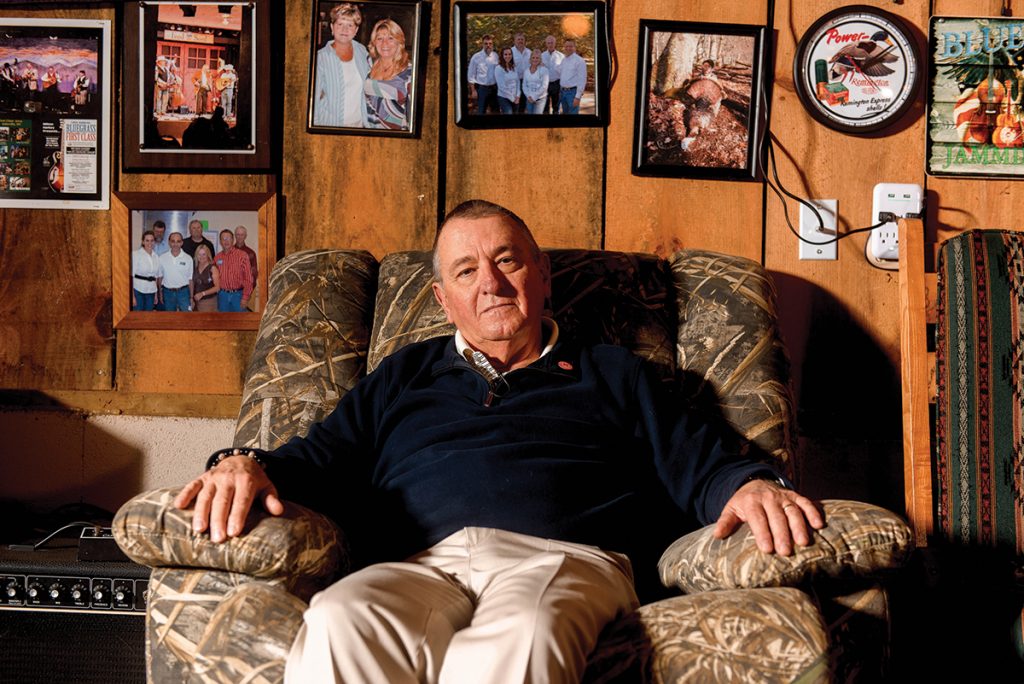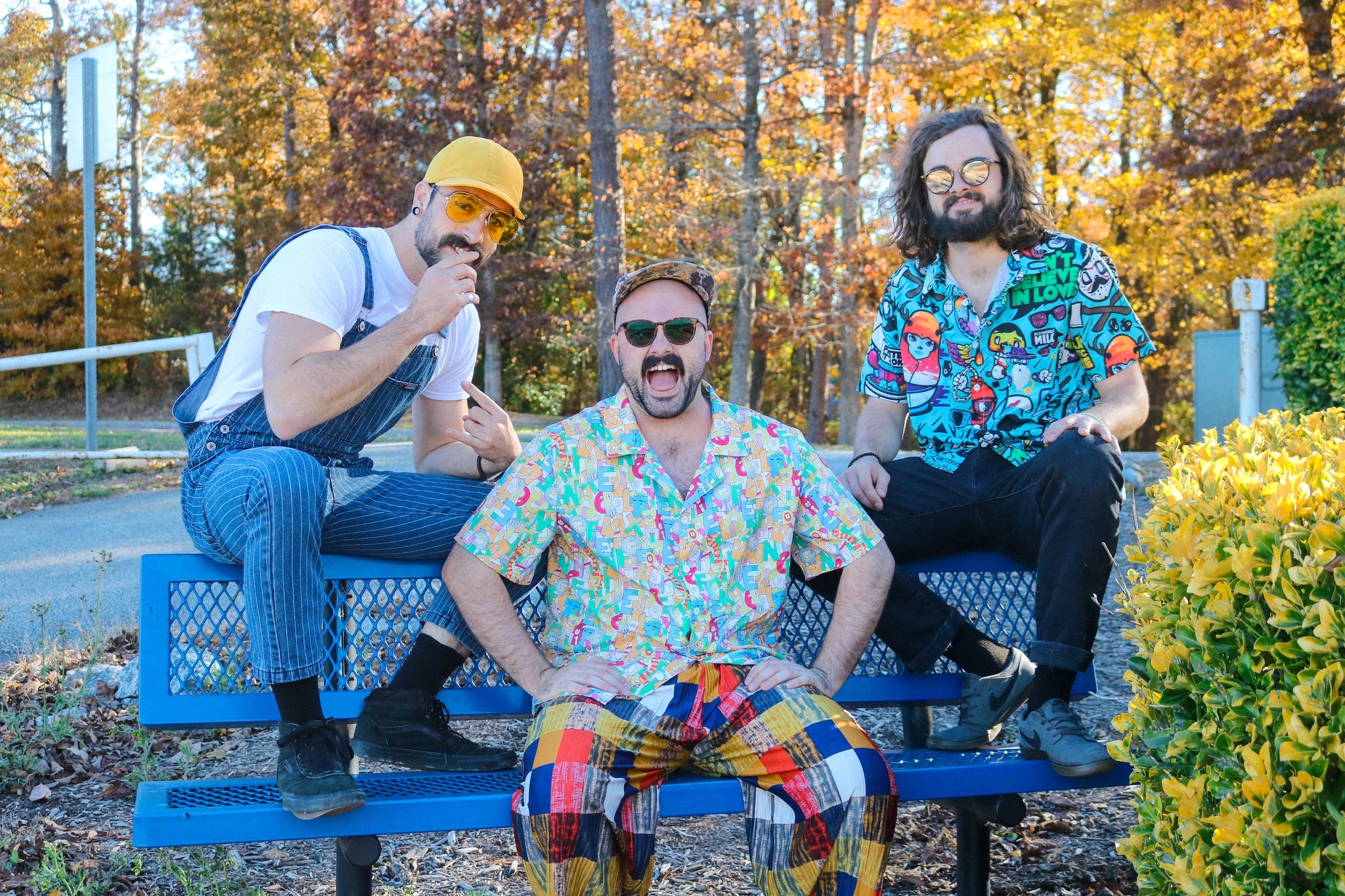The living, local voices behind moonshine history

TALES TO TELL
Dwayne Durham’s great great grandfather, William Durham, sold homemade liquor and was killed by a revenue agent.
Photo by Clark Hodgin
It was an early June morning in 1890. William Durham and a few others set out with a two-mule team from the “Dark Corner” foothills, headed for a hotel in Spartanburg, South Carolina. In the back of their wagon were 111 gallons of homemade liquor they planned to sell.
“They were ambushed by some revenue officers, a gun battle ensued, and my great-great grandfather was killed,” says Dwayne Durham, who lives in Henderson County. Durham remembers his great grandparents and their children recounting the story in the parlor of the family home after church when he was a boy.
Durham’s ancestors were farmers and carpenters by trade, but illegal liquor production was a way they could supplement their income in a very rugged part of the country (the Dark Corner spans a northwest portion of Upstate South Carolina into Polk County, NC). While the last person to distill liquor in his family was his grandfather, he still has the family’s 1800s-era 40-gallon still.

Photo by Clark Hodgin
“They didn’t see that it was wrong,” Durham explains. “They would always say, ‘It’s in the grain’” (meaning derived from natural sources).
The history of the Southern Appalachian people includes stories of adaptation and ingenuity amidst exceedingly tough circumstances. After the Civil War, high government excise taxes meant working-class people had to get creative to make ends meet. In addition to harvesting corn and other crops and raising hogs for barter, liquor production was another backbreaking but effective way to put food on the table.

Filmmaker David Weintraub wants to add context to a subject steeped in lore.
Photo by Clark Hodgin
Media tends to cover police raids of stills in shadowy hollows, or perpetuate stereotypes of moonshiners as drunk hillbillies with long beards to match their arrest records. But documentarian David Weintraub, producer/director of A Great American Tapestry: The Many Strands of Mountain Music, Guardians of Our Troubled Waters: River Heroes of the South, and other regional films under the umbrella “Saving Culture,” wants to tell the truer, untold story — one Durham and the nearly three-dozen other descendants of moonshiners Weintraub interviewed grew up hearing about.
In his latest film, The Spirits Still Move Them: Moonshining in the Southern Mountains, Weintraub portrays a generational knowledge passed down as a matter of pride and heritage. It’s the fascinating story of Native American, Black, and Scots-Irish men and women who made their own underground economy from taking corn, berries, sugar cane — anything that could be distilled — to produce a substance bubbling and clear as a mountain stream.

STILL UNDERCOVER
Dwayne Durham and Jerry Bishop with Dwayne’s great grandfather’s still, East Flat Rock.
Photo by Clark Hodgin
Transylvania County’s Tommy Dodson, one of the subjects shown in moonshine operation, explains that a farmer who learned to make liquor from excess grain could make a dollar from a bushel of corn that would otherwise yield ten cents.
Weintraub’s interviews coax a depth and candor from “humble people who didn’t think they had a story to tell,” as he puts it. “They were just living their lives.”
The documentary blends historical and modern-day footage of stills throughout Western North Carolina and Tennessee, accompanied by music from local Apple Country String Band and others.

LOOKING AHEAD
Copper artist Don Smith of Cedar Mountain with a newly welded still.
Photo by Clark Hodgin
The film adds forgotten context to a piece of a region’s past that has too often focused on the violence and harm caused by a few people. Weintraub again teams up with UNCA history professor Dan Pierce, who also appeared in 2019’s Guardians of Our Troubled Waters.
Just as production started ramping up last year, Spirits had to be temporarily shut down due to COVID restrictions. However, that inspired Weintraub to include an additional section on moonshine’s medicinal uses.
“I was doing a lot of reading about the 1918 pandemic, and actually, moonshine never sold so much as it did then, because there were a lot of folks that believed that [mixing it] with honey and lemon helped cure the flu,” he reports. Weintraub discovered in his research that widows began making and selling moonshine in order to keep children fed and clothed.
“Moonshiners were some of the most entrepreneurial, hardest-working, church-going people in the community,” he says. In fact, Dwayne Durham’s great-great grandfather is buried in the cemetery of his old church, Rock Springs Baptist in the Dark Corner area. “Many [regional] churches were built with moonshine money,” according to Weintraub.
Truth is often more interesting than myth — and certainly more satisfying than pop-culture stereotypes.
The Center for Cultural Preservation presents The Spirits Still Move Them: Moonshining in the Southern Mountains at the drive-in theater at North River Farms (3333 North Mills River Road in Mills River) on Friday, June 18, at 8pm, and at Southern Appalachian Brewery (822 Locust St., Hendersonville) on Sunday, June 20, at 8pm. (The movie launches June 17 at the Orange Peel in Asheville.) Outside locations are subject to date changes depending on weather. Ticket prices vary by location and advanced reservations are highly recommended. Order online at saveculture.org or call the Center at 828-692-8062.



